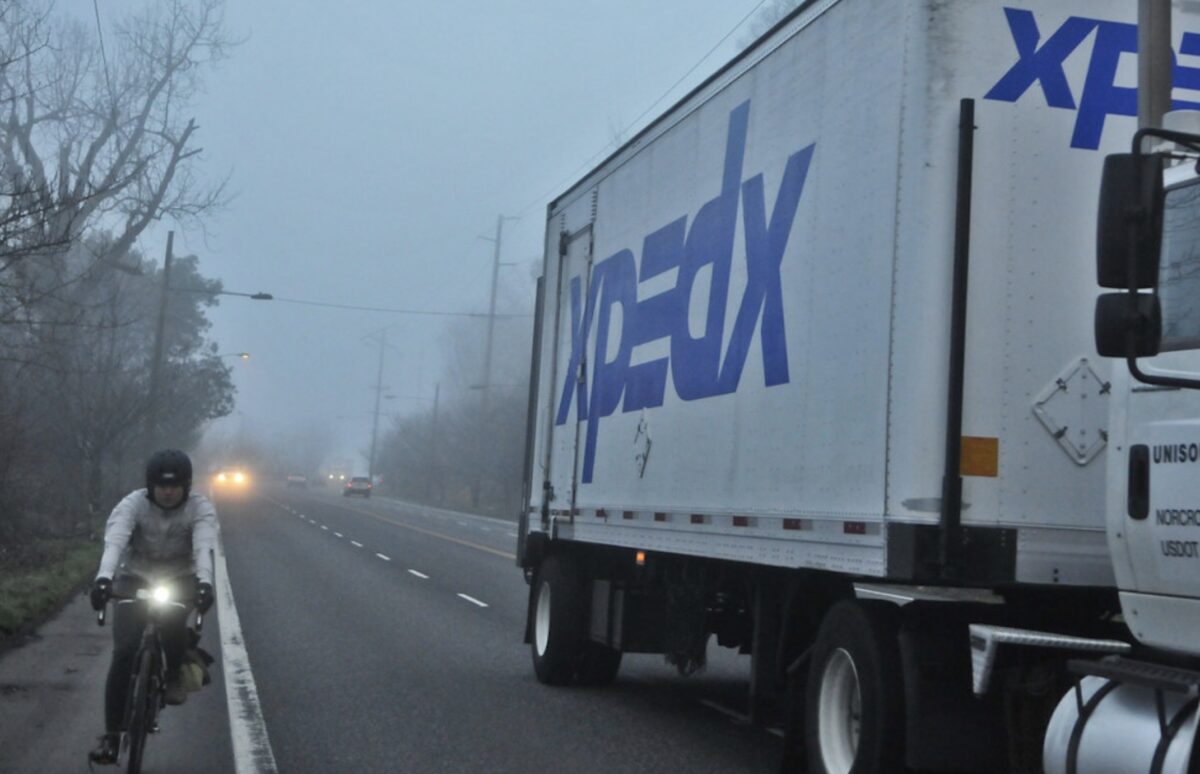
(Photo: Jonathan Maus/BikePortland)
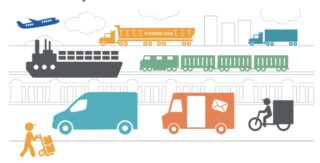
The Portland Bureau of Transportation (PBOT) is asking for community input in planning the future of urban freight in Portland. The 2040 Portland Freight Plan (2040 Freight) will be an update of the Freight Master Plan adopted by the Portland City Council in 2006, and PBOT says it will guide them “to support safe, equitable, efficient, and sustainable urban freight movement in Portland.”
The Portland/Vancouver region is one of the largest freight hubs on the West Coast, and though it also serves marine, rail and air terminals, trucking is the dominant mode for transport of both imports and exports. According to the 2040 Freight Existing Conditions Report, trucking is also the mode of goods transport most within the city’s control — so the city of Portland has more jurisdiction over what the future of truck freight will look like.
Advertisement
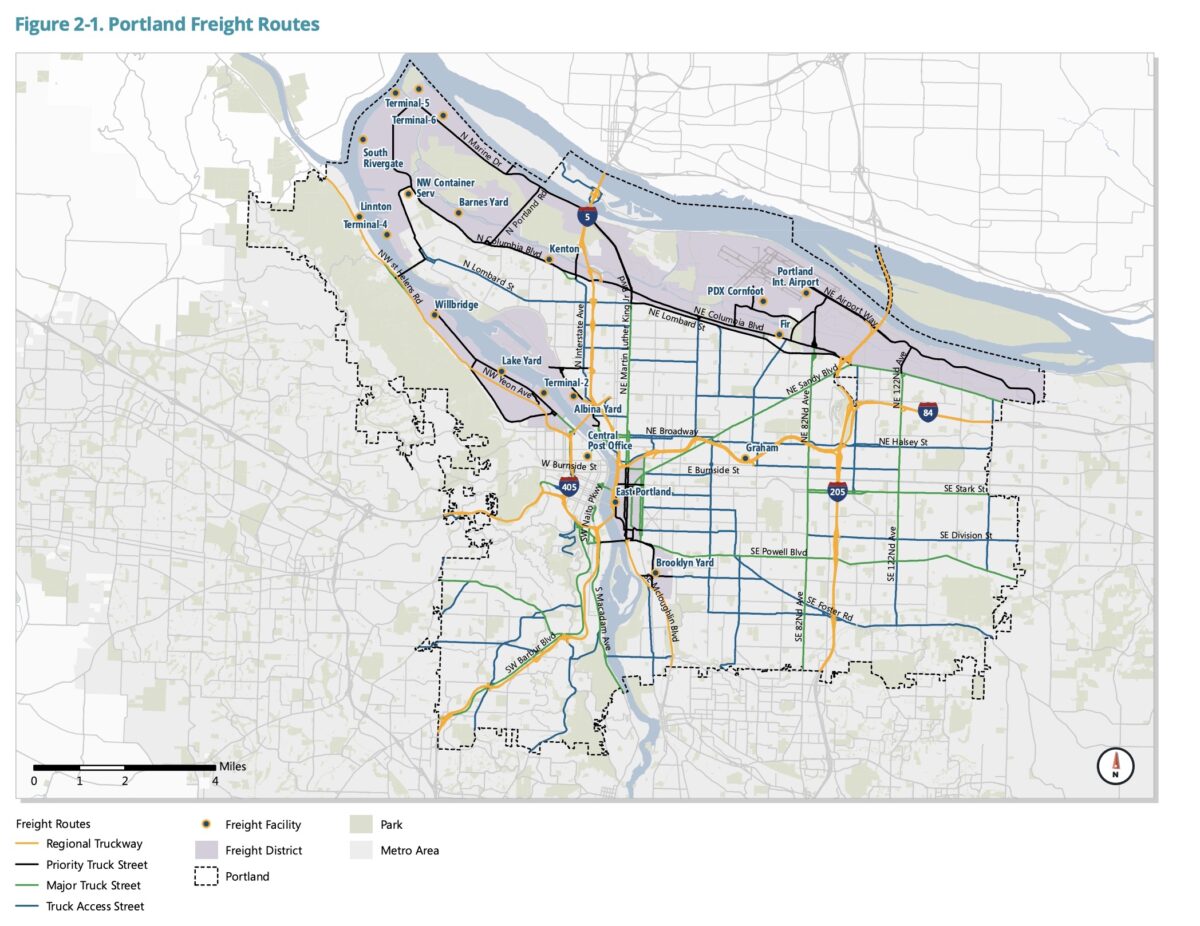
Metro’s 2018 Regional Transportation Plan includes seven policies the 2040 freight plan will have to align with, including an attempt to eliminate fatalities and injuries caused by freight vehicle crashes. According to the 2040 Freight Plan existing conditions report, there were 1,165 truck-involved collisions reported in Portland from 2014 to 2018 (at right, below). Of those collisions, 38% happened during turning movements and 3.5% involved a bicycle rider or walker. The report has also identified six safety “hot spots”: Downtown core, Central Eastside Industrial District, NE Broadway near the I-5 on/off ramps, Martin Luther King Jr Blvd., Columbia Blvd., and 82nd Ave.
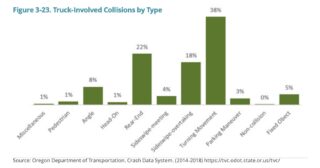
Truck safety (or lack thereof) is something BikePortland has kept a keen eye on, as people riding bikes and walking face major risks at the hands of people driving large commercial trucks. In May 2020, PBOT asked for feedback from the bicycle advisory committee on its freight plan update, and Portland Freight Coordinator Bob Hillier said PBOT was looking into ways to improve urban delivery. Although Hillier didn’t seem enthusiastic about the prospect of a major electric cargo bike delivery system at the time, PBOT has recently shown more consideration to this far safer and greener alternative urban freight delivery method.
A PBOT press release states that “most people think of freight as trucks on the highway, but within a city goods can also be delivered through delivery vans, bikes, and hand carts. The flow of goods and services within the city is critical to everyday life.”
PBOT wants feedback on which parts of the city people are most concerned about when it comes to how freight impacts safety, access, mobility, climate and pollution and racial equity. You can take the survey online through January 14th, 2022. For more background, check the official 2040 Freight Plan website.



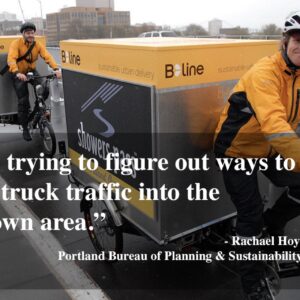
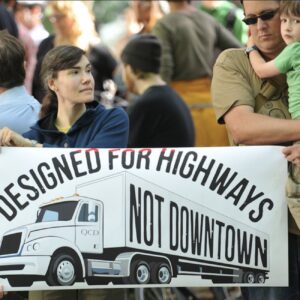

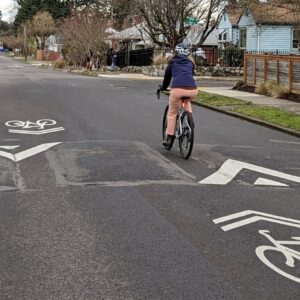
Thanks for reading.
BikePortland has served this community with independent community journalism since 2005. We rely on subscriptions from readers like you to survive. Your financial support is vital in keeping this valuable resource alive and well.
Please subscribe today to strengthen and expand our work.
What it really boils down to, is how do you feel about having deliveries made to you? About making it safer, more efficient, more convenient, and likely much more expensive?
A little recognition this truck is giving adequate space…